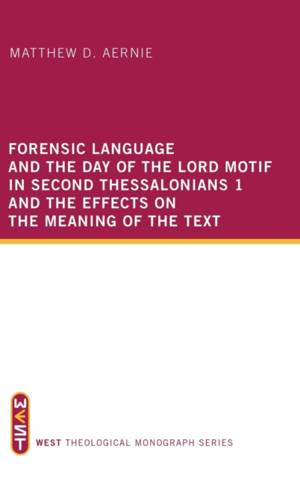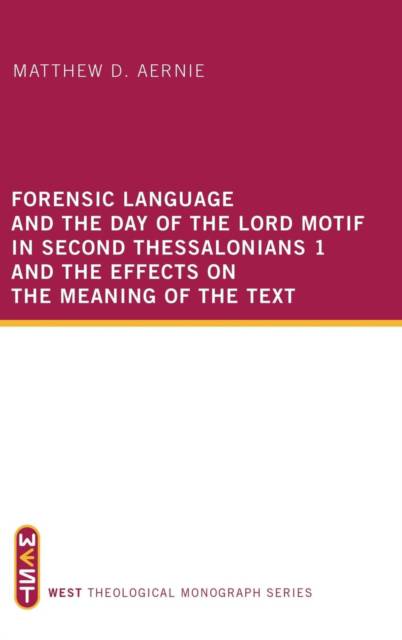
- Afhalen na 1 uur in een winkel met voorraad
- Gratis thuislevering in België vanaf € 30
- Ruim aanbod met 7 miljoen producten
- Afhalen na 1 uur in een winkel met voorraad
- Gratis thuislevering in België vanaf € 30
- Ruim aanbod met 7 miljoen producten
Zoeken
Forensic Language and the Day of the Lord Motif in Second Thessalonians 1 and the Effects on the Meaning of the Text
Matthew D Aernie
€ 70,95
+ 141 punten
Uitvoering
Omschrijving
In this book, Matthew Aernie argues that Paul intentionally used forensic language, allusions, and idioms throughout 2 Thessalonians 1 in order to encourage the persecuted church to remain steadfast as they waited for their vindication at the final assize. To support this thesis, Aernie suggests that such judicial language and allusions are intertextual parallels originating primarily from the Day of the Lord motif found throughout the Old Testament, and maintains that the Day of the Lord concept was understood by the author of the Thessalonian correspondence as a reference to the day when the Lord would render righteous verdicts upon those who had both obeyed and disobeyed him. Furthermore, Aernie argues that the author of 2 Thessalonians likely understood the Day of the Lord to be consummated at the Parousia of Christ, when the final court would convene. Therefore, borrowing from the judicial concept apparent in the Day of the Lord motif, Aernie concludes that the author utilized forensic language throughout 2 Thessalonians 1 to exhort the church to remain faithful amidst great opposition as they awaited their ultimate justification at God's eschatological tribunal.
Specificaties
Betrokkenen
- Auteur(s):
- Uitgeverij:
Inhoud
- Aantal bladzijden:
- 250
- Taal:
- Engels
- Reeks:
- Reeksnummer:
- nr. 2
Eigenschappen
- Productcode (EAN):
- 9781498260916
- Verschijningsdatum:
- 16/09/2011
- Uitvoering:
- Hardcover
- Formaat:
- Genaaid
- Afmetingen:
- 152 mm x 229 mm
- Gewicht:
- 508 g

Alleen bij Standaard Boekhandel
+ 141 punten op je klantenkaart van Standaard Boekhandel
Beoordelingen
We publiceren alleen reviews die voldoen aan de voorwaarden voor reviews. Bekijk onze voorwaarden voor reviews.











